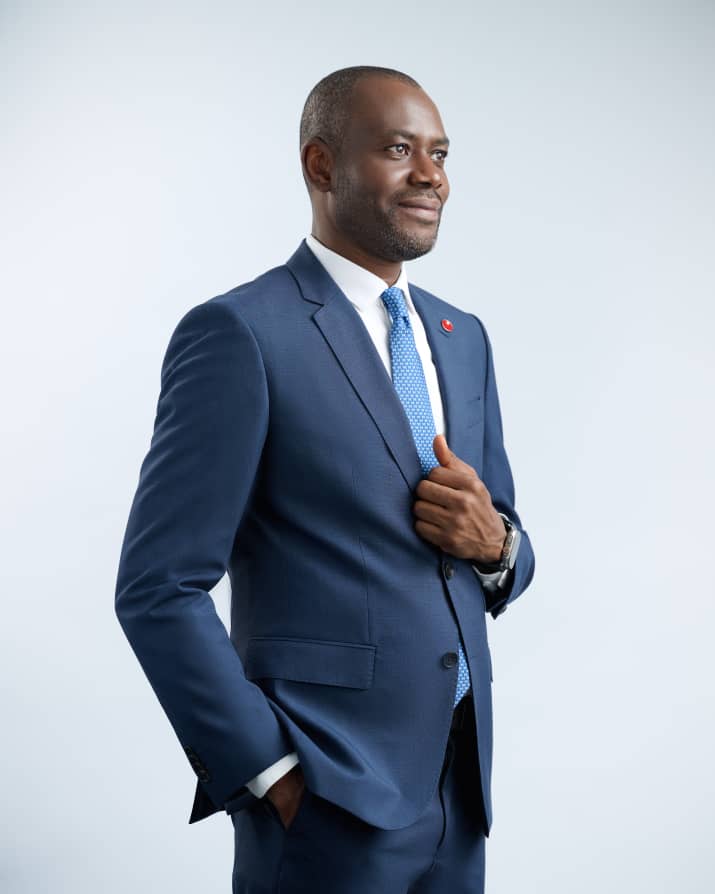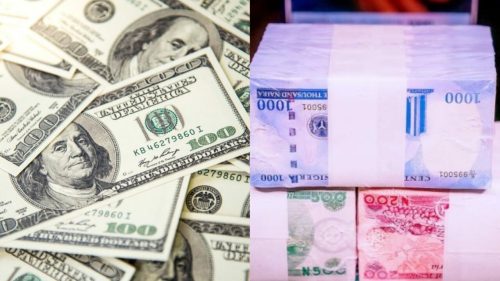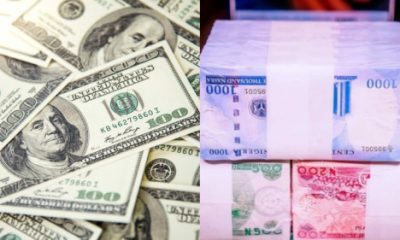Business
We Own Oriental Hotels, Not Tinubu- WEMPCO Management Cries Out

Western Metal Products Company (WEMPCO) Group, owners of Lagos Oriental Hotel, has denied insinuations in some quarters that it is owned by the national leader of the All Progressives Congress (APC), Asiwaju Bola Ahmed Tinubu.

In a statement by Taiwo Alli, Executive Director Corporate Affairs, Wempco Group the hotel’s management said: “Western Metal Products Company (WEMPCO) Group, owners of Lagos Oriental Hotel, formally acknowledge that there was an attack on our property on October 20, 2020, when hoodlums armed with guns, knives and bottles, forcefully gained entrance to our facility, assaulted some of our security personnel and damaged properties.
“Unidentified individuals whose motives remain unknown to us have gone to town with a rather unfortunate narrative claiming that the Lagos Oriental Hotel is the investment of politicians, thereby exposing it to unwarranted attacks.
“Lagos Oriental Hotel is owned by the WEMPCO Group with 99percent shareholding. The WEMPCO Group of Companies was founded by businessman and entrepreneur Mr. K.F. Tung over fifty (50) years ago.
“The Lagos Oriental Hotel is a flagship in the Nigerian hospitality business but is not a flagship of the WEMPCO Group. It is an investment made by the Group in 2008, but not part of their core manufacturing business.
“At present, WEMPCO Group provides jobs for over 25,000 young Nigerians, affording them the opportunity to earn a living and gain useful experience. It is therefore unfortunate the attempt to disrupt our business and tarnish our image painstakingly built over the years.
“Speaking on the development, the Managing Director, Mr. Lawrence Tung noted that ‘like other responsible businesses operating in Nigeria, Lagos Oriental Hotel is hopeful that closure will be brought to cases of injustice identified in the country. It is however important to protect our businesses from unwarranted attacks by individuals who may not be aware of the facts around our existence.
‘We are fully cooperating with the authorities in their investigations into the remote and immediate causes of the incident that occurred on 20, October 2020 and assure our numerous clients and partners that we are working to ensure that normalcy returns to the hotel.”
Business
Leadership Means Always Believing in Better – CEO, Sterling Bank

Abubakar Suleiman, the Chief Executive Officer of Sterling Bank Limited, delivered an enlightening discourse on leadership during the prestigious Lagos Leadership Summit 2024, powered by the Lateef Jakande Leadership Academy, shedding light on the profound essence of effective leadership and its transformative impact on society.
At the heart of Suleiman’s message was the concept of leadership as a catalyst for change—a force that propels individuals and organizations towards a shared vision of progress and prosperity. He eloquently articulated that leadership transcends mere management; it is about inspiring others to embrace a compelling vision of the future and empowering them to contribute meaningfully toward its realization.
Drawing from his wealth of experience, Suleiman emphasized the importance of purpose-driven leadership—a leadership style rooted in a deep sense of mission and conviction. He underscored that true leaders are not just managers of the status quo; they are visionaries who dare to imagine a better world and possess the courage to pursue that vision relentlessly.
Throughout his address, Suleiman explored the multifaceted nature of purpose, examining its manifestations in various spheres of life. He delved into the dynamics of family leadership, highlighting the timeless principles of sacrifice, dedication, and unconditional love that characterize effective parental leadership. Similarly, he underscored the profound influence of religion, emphasizing the role of faith in inspiring individuals to strive for a higher purpose and contribute to the common good.
Furthermore, Suleiman introduced the Japanese concept of Ikigai—a philosophy that encapsulates the intersection of passion, vocation, mission, and profession. He elucidated how identifying one’s Ikigai is a compass for navigating life’s complexities, guiding individuals to a fulfilling existence driven by purpose and meaning.
To addressing the pervasive issue of entitlement versus gratitude, Suleiman offered profound insights into the corrosive effects of entitlement on leadership effectiveness. He challenged the prevailing culture of entitlement, urging individuals to cultivate a spirit of gratitude and humility. According to Suleiman, true leaders are not defined by what they expect to receive but by what they are willing to give. They embody a spirit of selflessness, service, and sacrifice—a willingness to put the needs of others above their own.
In conclusion, Suleiman’s discourse brought to the fore timeless principles of purpose-driven leadership, gratitude, and sacrifice as essential attributes of effective leadership. His compelling insights serve as a clarion call to aspiring leaders everywhere, urging them to embrace their innate potential to lead with vision, integrity, and compassion.
Business
Black Market Dollar To Naira Exchange Rate Sunday, 28th April 2024
The local currency (abokiFx) opened at ₦1400.00 per $1 at the parallel market otherwise known as the black market, today, Sunday, 28th April 2024, in Lagos Nigeria, after it closed at ₦1450.00 per $1 on Saturday, 27th April 2024.

Black market dollar to naira exchange rate Sunday 28th April 2024 can be accessed below.
IMPORTANT NOTE: The exchange rate changes hourly.… it depends on the volume of dollars available and the Demands. It means that…you can buy or sell 1 dollar at a certain rate and the price can change (high or low) within hours.
JomogNews Nigeria has obtained the official naira black market exchange rate in Nigeria today including the Black Market rates, Bureau De Change (BDC), and CBN rates. Please note that the exchange rate is subject to hourly fluctuations influenced by the supply and demand of dollars in the market. As of now, you can purchase 1 dollar at a certain rate now, however, it’s important to keep in mind that the rate can shift (either upwards or downwards) within hours.
What is the dollar to naira exchange rate today?
The local currency (abokiFx) opened at ₦1400.00 per $1 at the parallel market otherwise known as the black market, today, Sunday, 28th April 2024, in Lagos Nigeria, after it closed at ₦1450.00 per $1 on Saturday, 27th April 2024.
Dollar to Naira (USD to NGN) Black Market Exchange Rate Today
Buying Rate of $1 ₦1400
Selling Rate of $1 ₦1,450
How does the black market dollar-to-naira exchange rate compare to the official rate?
The official exchange rate of the US dollar to the Nigerian naira, as of today, 28th April 2024, is N1,400 per US dollar.
This is the rate that the CBN uses for its transactions and interventions in the foreign exchange market. The official rate is also the basis for the exchange rates of other foreign currencies, such as the euro, the pound sterling, and the Chinese yuan.
The difference between the black market rate and the official rate is called the parallel market premium. The parallel market premium indicates the degree of divergence between the official and unofficial markets and reflects the level of confidence in the naira and the CBN’s policies.
Factors Influencing Foreign Exchange Rates
Here are some of the causes of the dwindling dollar-to-naira exchange rate.
Inflation Rates: It is well known that inflation directly impacts black market exchange rates. If the Nigerian economy can be stabilized and inflation is controlled, the naira will benefit; however, if the naira continues to fall, it may indicate that food and other necessities are becoming more expensive daily.
Interest Rates: Another tool to keep an eye on is interest rates. If the interest rate at which banks lend money rises, it would harm the economy, causing it to contract and, as a result, the value of the naira to fall.
Government Debt: National debt can impact investor confidence and, as a result, the influx of funds into the economy. If inflows are high, the naira exchange rate will rise in favour of the naira.
Speculators: Speculators frequently impact the naira-to-dollar exchange rate. They stockpile money in anticipation of a gain, causing the naira to plummet even lower.
Conditions of Trade: Favorable trade terms will increase the value of the naira to the dollar, although Nigeria is currently experiencing a trade deficit. Everything comes from China, India, and the majority of Asian countries.
Disclaimer: JOMOGNEWS NIGERIA does not set or determine forex rates. The official NAFEX rates are obtained from the website of the FMDQOTC. Parallel market rates (black market rates) are obtained from various sources including online media outlets. The rates you buy or sell forex may be different from what is captured in this article.
Business
Fidelity Bank: Improved Share Price as Growth Indicator

When the management of the Nigerian Exchange Limited (NGX) in July 2023 announced that it was reclassifying Fidelity Bank Plc from small-price stock to medium-price stock, financial analysts concluded that the road to attaining Tier1 status by the bank is closer than ever imagined.
In full year 2022. Fidelity Bank briefly fell into the Tier 1 category and saw the highest gross earnings of N337.10 billion and profit before tax of N53.68 billion. The bank’s higher interest income relative to interest expense led to a net interest margin of 7.70 per cent, ahead of other similar banks.
Regarding its financial position, the bank had the highest total assets at N3.99 trillion in 2022. The bank’s relatively low-risk asset exposure kept non-performing loans (NPLs) at 2.90 per cent, the second lowest in the Tier 2 category ahead of Wema Bank.
Although the group has struggled with curtailing operating costs with CIR above 50 per cent, Fidelity earned the second lowest CIR among Tier 2 banks at 59.00 per cent, slightly behind FCMB at 53.90 per cent in FY 2022.
In 9M 2023, Fidelity Bank, according to Proshare analysts will rise to full Tier 1 status in its next Tier 1 Banking Sector Report review based on Proshare’s Banking Strength Index (PBSI)) led second-tier banks in gross earnings, profitability, total assets, customer deposits, and loans and advances.
However, its non-performing loan ratio (NPLR) rose to 3.54 per cent after Wema Bank’s 2.50 per cent, while its cost-to-income ratio (CIR) settled at 49.86 per cent, which was an improvement from the previous year’s ratio.
Significantly, in its full-year 2023 results, the bank’s total assets as of December 31, 2023 has risen to N6.2 trillion.
The bank closed 2023 as the fifth best banking stock on the floor of the NGX with a share price of N10.85 and a market capitalization of N347.3 billion, depicting an annual gain of 149.4 per cent, Fidelity Bank also showcased a commendable financial performance.
Notably, it achieved a net income of N91.8 billion in the nine months ending September 2023, reflecting a substantial 162.46% year-on-year growth from the corresponding period in 2022.
Furthermore, the bank registered an impressive return on equity of 28.48 per cent during the first nine months of 2023.
The 2023 performance of the bank was similar to that of 2022 as it was one of the three banks that led the list of the best-performing banks on the NGX. The other banks are FCMB and FBN Holdings.
The research pours into the performance of thirteen of Nigeria’s largest commercial banks analyzing improvement year on year over two quarters.
The analysis revealed that the thirteen banks raked in a sum of N298.84 billion as post-tax profit between July and September 2022, representing an increase of 29.9 per cent compared to N228.54 billion recorded in the corresponding period of 2021.
The commercial banks remained resilient despite economic headwinds, which saw the nation’s aggregate GDP growth slowed to 2.25 per cent in Q3 2022 from 3.54 per cent recorded in the previous quarter and 4.03 per cent in the corresponding period of 2021.
Also, banks’ loans to customers grew by 5.5 per cent between June and September 2022 to stand at N23.76 trillion, representing a net new loan of N1.23 trillion in three months. However, this showed a slightly slower growth than the 6.81 per cent increase recorded in the comparable period of 2021.
NGX reclassification
The NGX said the reclassification became necessary because Fidelity Bank shares have been trading above the N5.00 mark since February 2023.
According to the NGX, rule 15.29 of the Rulebook of the Exchange, 2015 (Dealing Members’ Rules) notes that equities priced above N5 per share for at least four of the most recent six months of trading, or new security listings priced above N5 per share at the time of listing on NGX are classified as medium price stock.
“Fidelity Bank traded above the N5.00 mark on February 20, 2023 and has remained above the N5 mark up until close of business on 30 June 2023.
“This indicates that Fidelity Bank has been trading above N5 for at least four months in the last six months. Therefore, it should be reclassified from small price stock to medium price stock,” it pointed out.
The bank has continued to post commendable financial performance every quarter as it cements its position amongst tier-one banks in the country.
In the half-year 2023 results and for the second year running, the bank emerged as the company with the highest earnings per share on the Nigerian Exchange Limited (NGX).
According to a report, Fidelity Bank, Seplat Energy, Total Energies, Okomu Oil, Presco, Dangote Cement, MTN Nigeria, BUA Foods, First City Monument Bank (FCMB) and Geregu Power emerged as the companies with the highest earnings per share within that review period.
Earnings per share (EPS) is a company’s net profit divided by the number of common shares it has outstanding.
It also indicates how much money a company makes for each share of its stock and is a widely used metric for estimating corporate value.
A higher EPS indicates greater value because investors will pay more for a company’s shares if they think the company has higher profits relative to its share price.
Fidelity Bank recorded an earnings per share of N184 in the first half of 2023 from N79 in the first half of 2022.
The share price of the bank as of Thursday, April 25, 2024, stood at N9.00 per share as the bank traded 12.642 million shares valued at N112.071 billion in 246 deals.
Fidelity Bank’s share price movement has shown intense volatility in an upward direction over the past years. The stock price has risen from N2.52 on January 04, 2010, to N10.00 on March 15, 2023, generating a YTD return of 297 per cent.
The bank’s market capitalization as of Thursday, April 25, 2024, stood at N288.11 billion. Average volume stood at 11.76 million, share outstanding was 32.01 billion while free float was 31.72 billion
Fidelity Bank
Analysts believe the bank’s share price underlines its earnings growth and financial performance as higher dividend yields and future earnings forecasts have triggered demand in the money lender’s shares.
Over the last ten years, the bank’s share price has risen to a resistance (highest price) of N14.20 on March 05, 2024, and a support price (lowest price) of N0.76 on November 16, 2016.
According to a Lagos-based stockbroker, ‘Fidelity Bank demonstrates the classical admonition to prospective investors of entering low and selling high. Over the last eight years, Fidelity’s stock price has risen by 44.19 per cent on a compound annual basis; very few stocks could prove a better inflation hedge”.
Ambrose Omordion, Ambrose Omordion, Chief Research Officer at Investdata Consulting Limited, believes that this is the best time for Fidelity as the bank’s share price is doing well among its peers.
He said, “Fidelity is doing well and its share price is one of the best among its peers. This is so because the bank has recorded impressive results in its 2023 financial year. In June 2023, the bank shares rose by 32 per cent making it the nation’s best-performing bank share as of half year (June 30).
“I can only see a better bank now and in the future. The bank is a potential Tier 1 bank and the performance of the bank is a pointer to the fact that the bank will scale the recapitalisation hurdle of the Central Bank of Nigeria (CBN)”.
Prince Anthony Omojola, National Coordinator, Independent Shareholders Association of Nigeria (ISAN), asserted that “Fidelity Bank is moving up in terms of performance. They have joined those paying interim dividends and they have also dipped their hand into big money tills for huge investment. They have borrowed big to be able to handle bigger contracts and be able to reap big. The reclassification is welcomed and I hope they will not disappoint us. If they can meet expectations, the benefit will be for Nigeria”.
On his part, Sam Ndata, Doyen of Nigerian Stockbrokers and non-executive director at UIDC Securities Limited commented, “This is a good development. If a company performs well, it will surely be rewarded to earn investors’ confidence”.
Mr Boniface Okezie, the National Coordinator, Progressive Shareholders Association of Nigeria, commented, “Fidelity Bank has paid its dues in the financial services sector. It has contributed immensely to the development of the small and medium enterprises (SME) sector yet pays dividends to the shareholders. Last year, it took the market by surprise by declaring a dividend of 50k per share which had not happened in previous years. The massive investment in ICT and effective branch network shows it is ready to serve the customers in a better way and make the shareholders happy.”
-

 News2 days ago
News2 days agoJust In: Nigerian Police Detain NATCOM Director-General, Adegbenro In Abuja For Alleged Fraud, Impersonation
-

 Security & Crime1 day ago
Security & Crime1 day agoEkiti: Police Nabs Teenage Twins, Two Others For Burgling, Conspiracy
-

 News2 days ago
News2 days agoTwo Notorious Nigerian Drug Kingpins Sentenced To Life Imprisonment For Cocaine Trafficking
-

 News2 days ago
News2 days agoKogi Senator, Natasha Endorses EFCC’s Probe Of Yahaya Bello On N80.2bn Fraud
-

 News7 hours ago
News7 hours agoHow I Collected $600,000 Alleged Bribes For Emefiele: Ex-CBN Director
-

 News1 day ago
News1 day agoJust In: Exchange Rate Opens Week At N1,380 At Parallel Market
-

 Education1 day ago
Education1 day agoJAMB Set To Release 2024 UTME Results
-

 Politics1 day ago
Politics1 day agoPolice Begin Investigation As Gunmen Murder Aiyedatiwa’s Campaign Coordinator
















